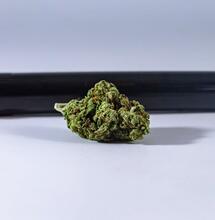Study Breaks Beliefs on Cannabis Effects

Frequent use of cannabis does not cause paranoia nor does it make users less motivated, claims a new study. The study dismantles a number of well-established cannabis stereotypes associated with habitual users. It also finds no evidence that weed causes a hangover the next day.
A new study has looked at the effects of frequent cannabis use and purported negative outcomes it may have in chronic users. The finds seem to break down some of the popular stereotypes.
The study authors acknowledged that some of the results are “surprising.” Data has revealed that when habitual users get high, “they were no more motivated, no less motivated for extrinsic or intrinsic reasons, and no less willing to objectively push themselves.”
The study included participants aged 21 and older from the U.S. and Canada who recreationally consume cannabis at least three times during the week. The participants were recruited from Reddit, and were asked to fill in a 30-minute survey as well as additional brief surveys 5 times a day during a one-week period.
Results Challenge General Beliefs About Effects of Cannabis
Overall, the results contained “both expected and surprising findings,” and most intriguingly they shook cursory claims that circle around about weed. The effects are not set in stone.
For example, users that too frequently use marijuana reported increased motivation, though they also reported being more impulsive and experiencing a wider range of negative emotions.
The authors noted that the historical criminalization of marijuana is one of the biggest sources for stereotypical imaging of cannabis effects. Looking back, that has prevented “neutral and clear-eyed evaluation of cannabis’s harms and benefits alike.”
The authors continue: “This led to a distorted view of cannabis and cannabis users, to the point where contemporary ethicists seriously claim that recreational cannabis is unethical, morally illicit, and never warranted. Such moralization helps clarify why cannabis users are stereotyped as lazy, uneducational, and possibly criminal.”
The study has linked the feeling of being high for chronic users with a range of increased positive emotions, including awe, inspiration and gratitude. Other common effects included reduced stress and less personal fears. “These emotional results shed some light on the main reason chronic users report using cannabis—because they like the feeling.”
Paranoia is a constant on the list of medical symptoms associated with cannabis use. But contrary to popular belief, getting high was not associated with increased suspicion or paranoia among habitual users, according to the study.
While weed did not negatively impact willpower of responsibility among chronic users, their survey answers suggest they had less self-control and were less organized and neat. They were also more willing to lie to get something and less willing to follow the rules, the results reveal.
However, all of these effects were small and participants only dealt with few lasting emotional effects after the high gradually diminished.
“At least among chronic users, the effects of cannabis intoxication in the real world are short lived, with little indication of any sort of cannabis hangover a few hours later or the next day,” the study authors wrote.
The study also noted that people who get high very frequently report greater negative emotions across the board, for example feeling more disgust, disdain, or embarrassment, all of which were counted as medium-to-large sized effects.
Still, the study cannot determine if habitual users experienced those emotions because of cannabis or if those emotions may have been a major reason for reaching to cannabis.
A weakness in the study is that the participants were selected online, and they might not be representative of a broader group of chronic users, the study authors highlighted.
Nevertheless, the results are very interesting and they do seem to undermine preestablished notions on the effects of cannabis. It’s definitely something that deserves more research in order to dismantle any remaining stereotypical imaging about cannabis.
The study has been published in the journal Social Psychological and Personality Science.
Also read on Soft Secrets:
- Does Cannabis Affect Your Ability to Drive?










